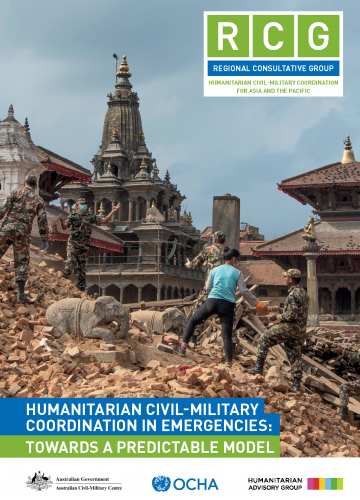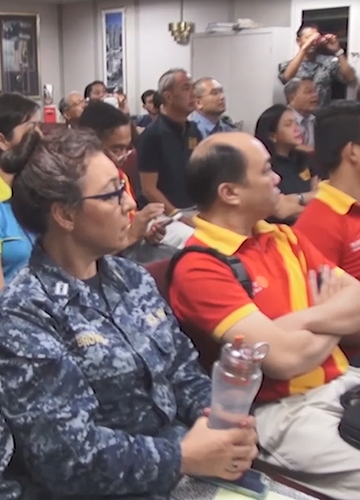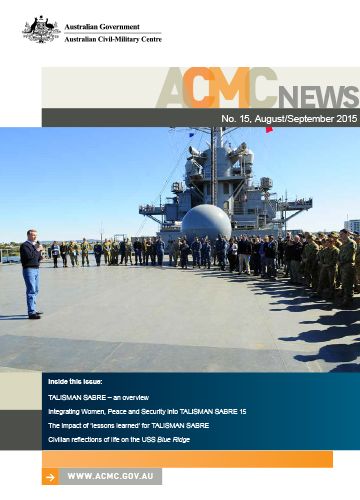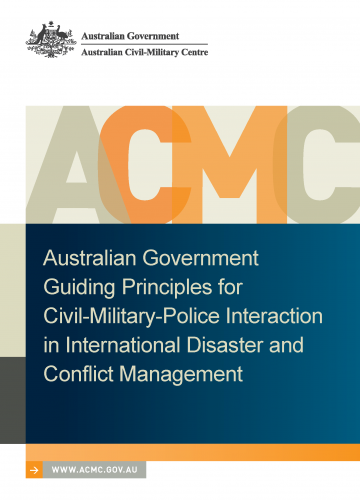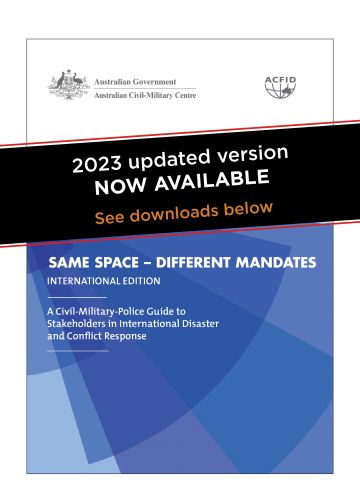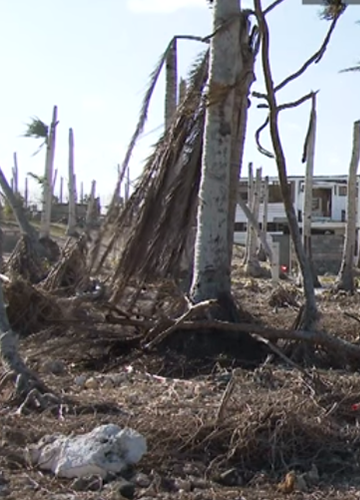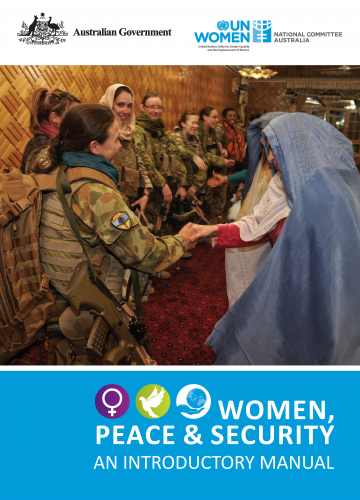Preparing together
As Australia’s involvement in international response and recovery operations has increased over the past decade, so has the number of government and non-government agencies contributing specialist capabilities and expertise to these operations.
The need for effective interaction and enhanced preparedness between agencies is crucial to the success and effectiveness of today’s civil-military responses.
While agencies undertake their own programs and activities to ensure they are prepared for their roles, we need to focus on civil-military-police preparedness to strengthen cross-agency decision-making, coordination, planning and implementation.
Devoting resources to understanding how other agencies operate – investing in cross-agency exercises - reinforces experience in successful civil-military-police partnerships from recent responses.
It is easy to stop investing in civil-military-police cooperation when response to a conflict, complex emergency or disaster is over. To see the requirement as a one off and not as business as usual. Rather than start from the beginning to rebuild effective crisis partnerships – trust, respect, understanding, and collaborative working practices – the next time we respond to an offshore crisis, we need to maintain high-levels of cooperation through investing in exercises.
Civil-military-police exercises are designed to explore real world cross-agency cooperation challenges. They provide an experiential learning environment that strengthens understanding of the different languages, ways of operating, roles and responsibilities and expertise each agency brings to the table. Exercises are crucial in cultivating a collaboration culture, building trust and understanding and in developing cooperative planning and implementation processes. They drive cultural change and enhance the capacity of civilian, military and police actors to work together during a conflict or disaster response.
ACMC delivers a unique capability for civil-military-police exercise, providing expert advice on exercise prioritization, advocating and coordinating civilian and police participation across the life-cycle of military exercises, designing and facilitating regional multiagency exercises, and evaluating the effectiveness of civil-military-cooperation.


